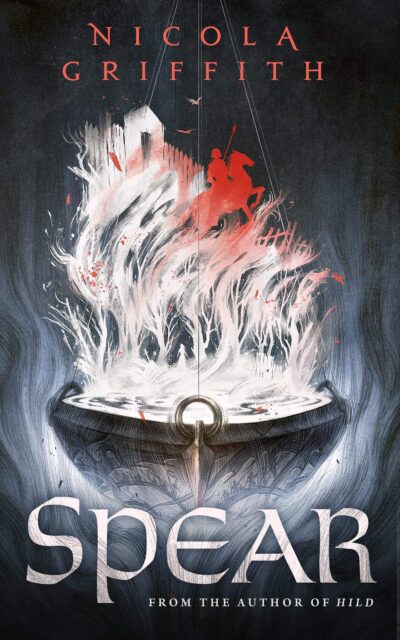
That focus on things, on the material, is why the magic works so well in Spear, and it’s also a huge part of why the story works on more realistic levels.


It’s a world in which surfaces speak of unseen depths, where a passing fly carries news of danger, where a shadow smells of intent and words “smoked and fumed” with traces of the speaker’s home. There are different species of magic at play here-the potent artifacts of the Tuath Dé, Nimuë’s thoughtful sorcery-but the magic that Peretur uses throughout, as naturally as breathing, is mostly just an incredible awareness, an attentiveness to things, that permeates the entire text in a way both wondrous and believable. Readers familiar with Arthurian legend will quickly identify the setting-Percival and the Grail, Guinevere and Lancelot, a certain sword from a stone-but Griffith inclines towards Welsh and other non-modernized naming conventions, not so much hiding the source material as allowing us to focus on this incarnation, this character and her journey, and on the weirder and older forces in play.Ĭards on the table: I generally dislike magic “systems,” the mechanistic over-explanation of fantasy-so it was a real delight to find in Spear something that genuinely feels magical. After encountering a noble group of knights, she sets herself the task of joining their company, makes a name for herself fighting fierce bandits, and must eventually lead a quest entangled with her own supernatural origins.

The story follows an initially-nameless girl, later calling herself Peretur, growing up with her mother in the wild before seeking adventure. Fresh, poetic, and sensuous, Nicola Griffith’s Spear recaptures what’s wild and strange in those stories and their sources-or, rather, doesn’t capture at all, but lets it stay free and secretive, lets us see it running off the page and into a wider world. So it’s either an odd or an apt time to recommend a new entry in King Arthur stories, much-reinterpreted and pieced together from older traditions as those legends are.

We are surely-hopefully-nearing some kind of peak of cultural reboot fatigue, awash as we are in retellings, re-adaptations, and perpetually rebooting expanded cinematic universes.


 0 kommentar(er)
0 kommentar(er)
